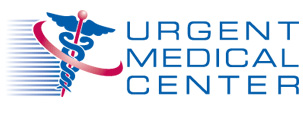 Vitamin D is an important component of your diet. A lack of sun, milk allergies or a vegan diet can leave you with inadequate vitamin D levels and subsequent health issues.
Vitamin D is an important component of your diet. A lack of sun, milk allergies or a vegan diet can leave you with inadequate vitamin D levels and subsequent health issues.
All it takes is around 15 minutes in the sun each day to get adequate doses of vitamin D. While it might seem like you get this much sun, you may or may not. Wearing covered clothing and sunscreen will reduce your absorption of this important nutrient. Vitamin D is coined the ‘sunshine vitamin,’ although the sun isn’t the only source of vitamin D. Certain foods also contain vitamin D, including some fish, fish liver oils, egg yolks, fortified dairy and grain products.
Why Do You Need Vitamin D?
You need vitamin D for a number of reasons, for one it helps give you strong bones because it helps the body appropriately use calcium. A common disease associated with vitamin D deficiency is rickets, which has to do with the bone tissue improperly mineralizing and causing soft bones as well as skeletal deformities. Vitamin D has also been proven effective at helping to protect the body against many different health problems.
Are You Low In Vitamin D?
Signs that you may be deficient in vitamin D include bone pain or muscle weakness, but some people experience no symptoms at all. Even if you have no symptoms you can still suffer from the health consequences associated with inadequate vitamin D levels.
Low blood levels of this important vitamin have been linked to the following health consequences:
-Greater risk for death related to cardiovascular disease
-Older adults may experience cognitive impairment
-Children may experience severe asthma
-Cancer
-Muscle/joint pain and weakness
-Bone pain
-Fatigue or extreme tiredness
-Depression
Researchers have found so many benefits to vitamin D, including prevention and treatment of many common conditions and diseases including hypertension, type 1 and type 2 diabetes, glucose intolerance and multiple sclerosis
What Causes Vitamin D Deficiency?
Even if you think you get enough time in the sun or consume a healthy diet you may be deficient in vitamin D. The leading reasons for this type of deficiency include:
-You eat a vegan diet and miss out on many sources of vitamin D in your day-to-day life such as egg yolks, fish, cheese, fortified milk and beef liver.
-You stay out of the sun, which is smart if you have fair skin. Yet, a little bit of sun is important to your health, especially in regards to vitamin D. If you spend a lot of time inside, wear a long robe or head covering for religious purposes, live at a northern latitude or work at a job that prevents much sun exposure, you probably aren’t getting enough vitamin D from the sun. Also, if you wear sunscreen or covered clothing vitamin D will not absorb into your skin.
-If you are dark skinned your pigment melanin may reduce your skin’s ability to produce vitamin D when exposed to sunlight. Older adults with darker skin are at the greatest risk for this type of vitamin D deficiency.
-Kidney issues may cause your body to wrongly convert vitamin D into its active and beneficial form. As you age your kidneys decrease in ability to convert vitamin D, meaning the older you are the greater your risk for this particular issue.
-You are overweight. Vitamin D is extracted from fat cells in the blood and if your body mass exceeds 30+ you are more likely to have low blood levels of vitamin D.
-Your body does not properly digest vitamin D. Crohn’s disease, cystic fibrosis, and celiac disease are a few disorders linked to an inability for the body to properly absorb and make use of vitamin D consumed through your diet.
How To Know If You Need More Vitamin D
A regular blood test will reveal if you are lacking enough vitamin D in your blood. Healthy people should have around 20 nanograms/milliliter to 50 ng/mL. If your vitamin D levels fall less than 12 ng/mL this indicates a need to supplement your diet.
Treatment For Lack Of Vitamin D
Once you know you need more vitamin D the treatment options are very simple. You can add more vitamin D to your diet by eating more foods rich in this particular vitamin. You may also take supplements, or add a few more minutes in the sunshine to your daily routine.
If you are between 1 and 70-years-old the Institute of Medicine recommends you consume 600 international units (IU) of vitamin D every day. In aims to help improve bone health they have raised this to 800 IU for adults that are over 70-years-old.
(vitamin d deficiency article)
If you are unsure about your own vitamin D levels come by Urgent Medical Center today for a simple blood test.




